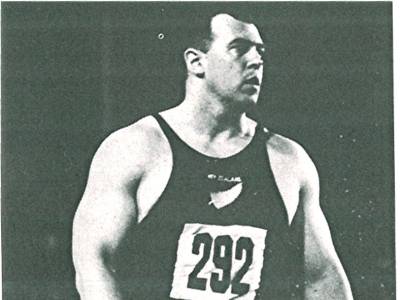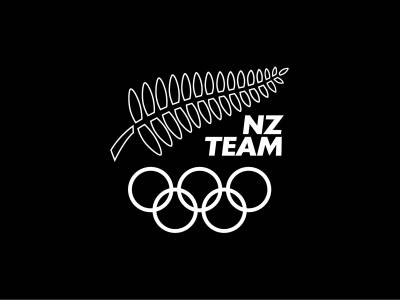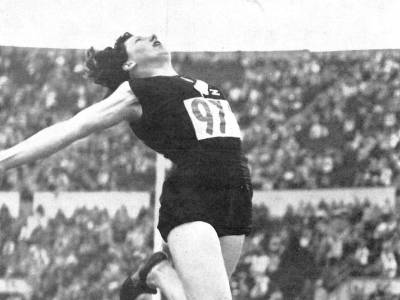
No-one ever exemplified the Olympic spirit of triumphing over adversity better than Murray Halberg.
He was so badly injured while playing rugby when he was 17 that at one point his life was despaired of. After months of rehabilitation, he was left with a withered left arm, and had to teach himself to do everything, from writing to eating, with his right hand.
From the embers of that disaster arose the will and the courage of a true champion. Halberg won the Olympic 5000m gold medal in 1960, and the Empire Games three-mile golds in 1958 and 1962. In 1958, he became the first New Zealander to break four minutes for the mile. He was the first really great athlete to emerge from the Arthur Lydiard stable.
Halberg was born in Eketahuna, but grew up in Auckland. He was a budding cricketer before his accident, but was already starting to enjoy some success as a runner, and the chance to watch the 1950 Auckland Empire Games fuelled his desire further.
His talent was nurtured by Lydiard, with his endurance training methods.
"Arthur meant everything to me," says Halberg. "If I'd never met Arthur I would never have become a top runner. There was some talent there, and I may have got as far as winning a New Zealand title. But that would have been it. Arthur's advice, encouragement and expertise enabled me to become an Olympic champion.
"And that was the springboard that enabled me to use my name to launch the Halberg Trust for Crippled Children. Arthur was my mentor, my guide, my guru."
It took Halberg a while to mature as an athlete - there were less-than-impressive efforts at the 1954 Empire Games and 1956 Melbourne Olympics before he stepped into the top world class. At Melbourne he reached the final of the 1500m, but then ran a poor tactical race, slipping back through the field to finish almost last. Devastated, he vowed to himself that he would return to the Olympic stage and fulfill what he believed was his destiny – to be an Olympic champion.
By 1960 he was favoured to win the Olympic 5000m title. He and Lydiard decided on the same tactics he'd successfully employed at the 1958 Cardiff Empire Games - sprinting clear with three laps remaining and then holding on. It was a tactic that called for boldness and tenacity, and Halberg certainly had both those attributes.
Spurred on by stablemate Peter Snell's victory in the 800m final just before his race, Halberg carried out the plan perfectly. He put 20 metres on the field with his sudden burst and held half that margin all the way to the tape.
He ran until the Tokyo Olympics in 1964, where he finished seventh in the 10,000m final, but by then he was past his best. When he retired, he did some coaching, but preferred to pour his energy into his trust.
Inspired by the example of the Canadians, he relaunched the Sportsman of the Year dinner and built it so that it became the focal point of the annual fund-raising campaign (the dinner was renamed the Halberg Awards in 1992).
Halberg and his wife Phyllis had two children. Halberg, who was voted New Zealand Sportsman of the Year in 1958, was knighted in 1988 and in 1990 was inducted into the New Zealand Sports Hall of Fame. He was the inaugural recipient of the Lonsdale Cup, in 1961.
Halberg was employed by New Zealand Breweries in the early 1960s. Then he and Phyllis moved into her family's soft furnishing business in Dominion Road. They remained there for 20 years, before moving to Waiheke Island for a time.
After a battle with cancer, he returned to good health and assisted the 2002 Commonwealth Games team in Manchester as a mentor for the athletes, a role he filled again at the 2004 Athens Olympics.
In 2008, Halberg was appointed to New Zealand's highest non-titular honour, the Order of New Zealand. The following month he became only the fourth person to be awarded the Blake Medal (named after fellow countryman Sir Peter Blake) for his more than 50 years' service to athletics, and to children with disabilities. The NZOC recognised his outstanding work on behalf of the Olympic movement by making him an Olympic Order Holder.
Tweet Share

Murray's Games History
-
Olympic Summer Games Tokyo 1964
-
Commonwealth Games Perth 1962
- 1
-
Olympic Summer Games Rome 1960
- 1
-
Commonwealth Games Cardiff 1958
- 1
-
Olympic Summer Games Melbourne 1956
-
Commonwealth Games Vancouver 1954










